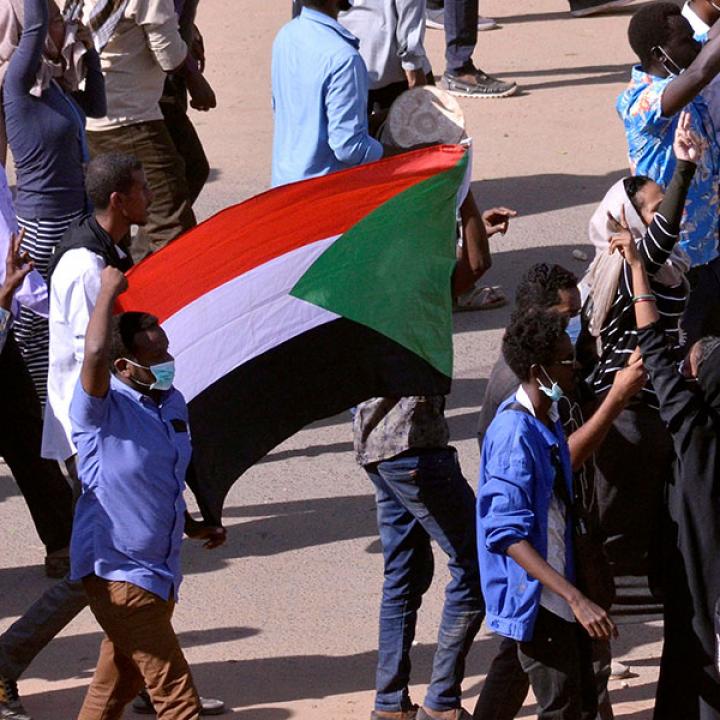
- Policy Analysis
- Fikra Forum
Hassan Mneimneh Responds to "Peaceful Transition in Sudan: Obstacles Along the Path"

Autocrats, theocrats, and democrats—protagonists once again in “Arab Spring” 2.0, in Algeria and Sudan—seem to have all learned the lesson of the original 2011 release, and to be maneuvering to avoid a repetition of the results to their respective detriment. The military in both countries is avoiding provocative moves, relying instead on the putative fragmentation of the popular will. Islamists are more discreet in pretending to any leadership role in Algeria, or claiming any meaningful part in defending a regime with whom they have proven affinity in Sudan. Democrats are vastly more vocal in defending their initiative and insistence on civil power. Yet this is not a level playing field, as amply described about Sudan in this crucially important article.
The author reflects the civil activists’ awareness of the redundancies in the hierarchies of Sudan's tools of oppression. He is correct in his assessment that this massive web of security, military, and para-military formations constitutes a clear and present danger, not just to the transformation process, but well beyond. The author alludes to Hezbollah, in its existence outside of the normal structure of state agencies, as a potential implicit model in what could follow. He also mentions Libya, in its dislocated security geography.
However, more similar case for comparison may be Iraq, where another dictatorial regime compensated during the years of its rule for the lack of efficiency on the part of its apparatus of control, as well as for feared loyalty breaches, by multiplying its means of oppression. Saddam Hussein, like Omar al-Bashir, resorted to absorbing and empowering antagonistic elements in his country, along separate and parallel tracks to insure his ability to maintain total control.
In the case of Iraq, even with the overwhelming might of the United States (but also due some of its actions such as the disbanding of the army and a rushed deba‘thification), the after-effects of the previous order have continued to be felt forcefully for long, and are still not completely eradicated. Through unofficial off-shoots, including the “Islamic State,” the Saddam regime continues its reign of terror. This is a sobering fact for the prospects of positive change in Sudan.
Compared to Iraq—where an international coalition was mobilized seeking to dismantle the regime—Sudan is far less equipped, with seemingly no substantive anticipated support to assist in defending its emerging civil movement. The probability is high for these malevolent agents to emerge and take advantage of weaknesses that are bound to manifest. As in Iraq, the repercussions would not be limited to Sudan or Eastern Africa. Instead, the potential for links with nefarious forces, from Arabia and the Levant to the Sahel and the Maghreb, are substantial.
Whether Sudan will disintegrate into a magnet for renewed Jihadism or whether it will be “saved” by a military proclaiming an anti-Islamist stance and thwarting any genuine democratic progress are both outcomes that would challenge the country's putative and precarious transformation.
These dire prospects are certainly in the consciousness of Sudanese pro-democracy militants. Even where material support does not seem possible, friends of Sudan have the urgent task of alerting the world to the early emergence and implications of both theocratic and autocratic actors, and of exposing the external support that seems ready to align in their favor.
Read the original article here.


